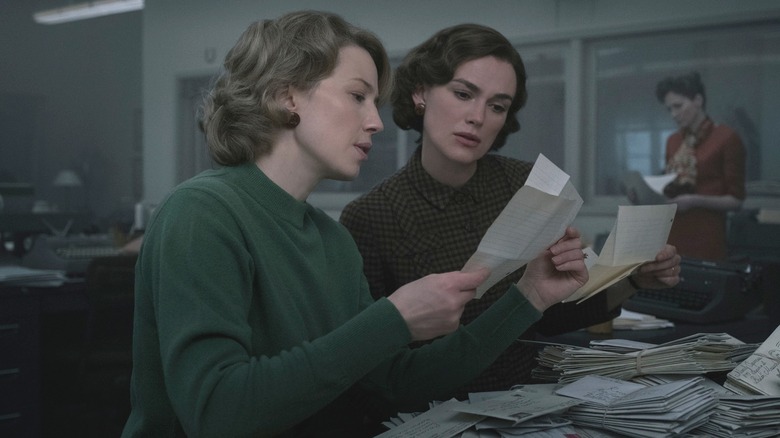Source: SlashFilm
Published and curated from SlashFilm Read More
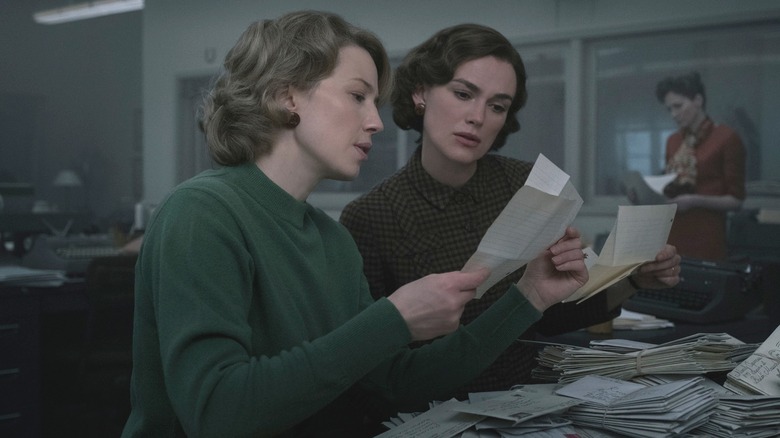
“Boston Strangler,” the new film from “Crown Heights” director Matt Ruskin, is one of the most well-cast movies of 2023. A 1960s period piece about the infamous Boston Strangler murders, the film stars Keira Knightley as Loretta McLaughlin, an under-appreciated journalist who becomes the first person to break the story of a killer going after women in the city. While there were a few bright spots, Knightley’s career in the 2010s was littered with largely thankless roles in projects like “Jack Ryan: Shadow Recruit,” “Everest,” and “Collateral Beauty,” so it’s thrilling to see her back in true movie star mode for the first time in years.
It certainly helps that Knightley is surrounded by a who’s who of great character actors, including Carrie Coon as journalist Jean Cole; Chris Cooper as their editor, Jack MacLaine; Alessandro Nivola as a police detective who becomes a confidant during the investigation; and David Dastmalchian as one of the prime suspects.
I spoke with writer-director Matt Ruskin about working with that cast, being influenced by filmmakers David Fincher and Alan J. Pakula, how his conception of this story changed when he learned about the real people involved, and more.
Note: This interview has been lightly edited for clarity and brevity.
‘It Always Starts With Character’
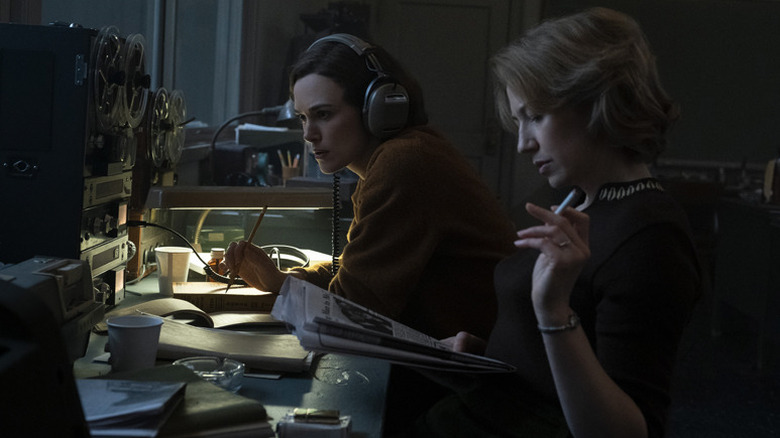
We are in an era where it feels like the concepts of truth and justice have been under attack for the past several years, and I’m curious if that factored into your decision to make this movie, which is about a quest for the truth.
It’s definitely a part of it. I agree. I think this film is as relevant today as ever. But I think for me as a filmmaker, it always starts with character. And I grew up in Boston and I had always heard about the Boston Strangler, and then a few years ago I started reading about the case and I discovered this incredible murder mystery at the heart of the story. But it didn’t really all click for me until I discovered these two journalists, Loretta McLaughlin and Jean Cole, who broke the story of the Strangler and really challenged the norms of the era to do the work that was so important to them. I found their story deeply inspiring. And as you alluded to, the need for good journalism is as important as ever today with the rise of misinformation and all the cable news and all of that trainwreck.
There’s been a real explosion of true crime projects over the past decade. Were there tropes that you wanted to lean into, and tropes that you definitely wanted to stay away from with this?
I looked at a lot of films, whether it was “Zodiac” — I think [director David] Fincher just does such an incredible job in terms of creating tone and a visual style that enhances the story. I really took a lot of lessons from that. But then I also looked at a lot of journalism films. I looked at how they photographed the newsroom in “All the President’s Men.” So it was not exclusively looking at true crime. And I think the biggest thing for me was trying to tell a story, trying to create a pressure cooker of a dramatic thriller, but not do it in a way that was at all exploitative. It was really important to be respectful of these victims, because it is a true story. I didn’t want to depict violence in a gratuitous way, but I also wanted to really horrify people and immerse people in this story.
I guess that’s where the “Zodiac” of it all comes in, that tone he was able to strike in that movie. I felt a sense of that in this film as well. I’m a sucker for these kind of movies anyway, but it felt like you really learned at the altar of Fincher for this particular project.
Certainly some of that, just in terms of restrained camera movement and placement and some of the darker color palettes. But I think, yeah, he’s just such a master. There’s so much to learn from all of his movies.
‘It Didn’t Really Make Sense For Me To Try And Tell A Sort Of Hard-Boiled Detective Story’
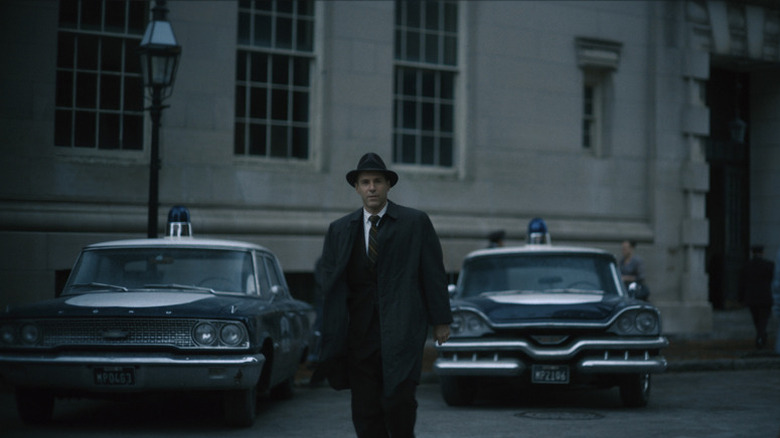
Since nothing ever goes entirely as planned when you’re making a movie, how did this project change from your initial conception of it to the final product?
I mean, the short version of that is there’s just never enough time and money, no matter what. So we were always trying to figure out what can we lose? Shooting a period film in Boston in the middle of the winter during the height of the omicron spike was very challenging. So just trying to keep the train on the tracks in the most basic sense was really a group effort. But yeah, there’s just all the usual challenges from trying to get a schedule that works where you can shoot your whole script, to trying to make sure you’re honoring the spirit of who these people really were.
It sounds like it was mostly a process of paring down then, as opposed to pivoting into different directions.
Yeah, when I first started reading about the Boston Strangler case, I didn’t know who these reporters were, so I was just looking at it from the perspective of the police and then because the case was mismanaged in so many ways and no one was ever convicted of these crimes, it didn’t really make sense for me to try and tell a sort of hard-boiled detective story. It wasn’t until I discovered these two journalists that it really clicked. So that was sort of the biggest creative pivot. And then the rest is just the meat grinder of trying to make your movie.
‘The Hardest Things To Shoot Were Some Of The Things That You Would Not Expect’
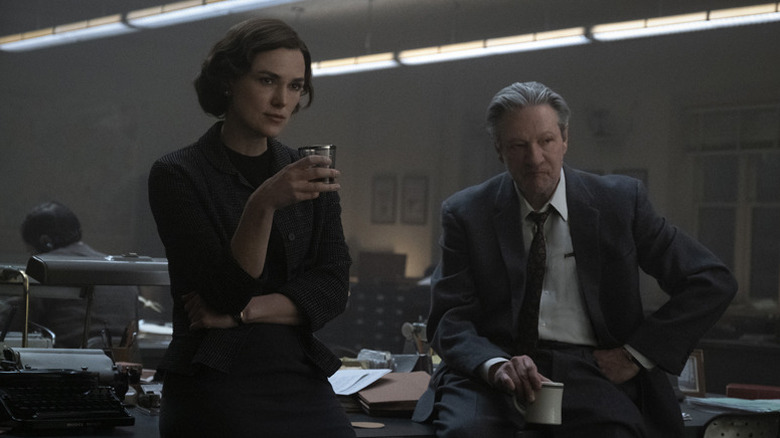
You might have sneakily put together the best cast of the year here. When you think back about working with these actors, what are some highlights of your time on set with them?
Yeah, I agree. I think the world of this cast, it was really a dream come true to get to work with such incredible actors and just getting to know each of them. They’re all so talented and so different and they all bring such different things to the table. Keira, she’s just such an experienced pro. She’s an incredible talent, but she’s also, she’s been doing this much of her life and shows up totally prepared in every moment. And Chris Cooper being sort of the elder statesman who we all, both in front and behind the camera, all of us admired him. They’re all just very different, but I think everybody really enjoyed working together and respected one another, which was great.
Were there any particular actors that you sort of sidled up to in between takes while you were waiting on lighting set-ups and asked them for stories of their previous experiences?
All of it. Keira, I was pumping her for Joe Wright stories. With Carrie [Coon], I was asking her what it was like being on a Fincher set. And with Chris, it was just a lifetime of questions for him, from John Sayles to working with Bennett Miller.
Was there a specific scene you thought would be a beast to film that ended up actually being much easier than you thought? And then the reverse of that, too: a scene you were anticipating being really easy, but actually ended up giving you a lot of trouble?
My experience is that any time there’s a stunt involved, so much planning goes into it that they tend to go pretty smoothly. And we weren’t like blowing up buildings or anything in this movie, so it was all pretty straightforward. The hardest things to shoot were some of the things that you would not expect, like four people in an office. Just given the restrictions of the space and the time and the coverage, those ended up being some of the most time-consuming. Four people in a room.
“Boston Strangler” arrives on Hulu on March 17, 2023.
Read this next: The 30 Most Anticipated Movies Of 2023
The post Boston Strangler Director On How Zodiac Influenced His True Crime Drama [Exclusive Interview] appeared first on /Film.
